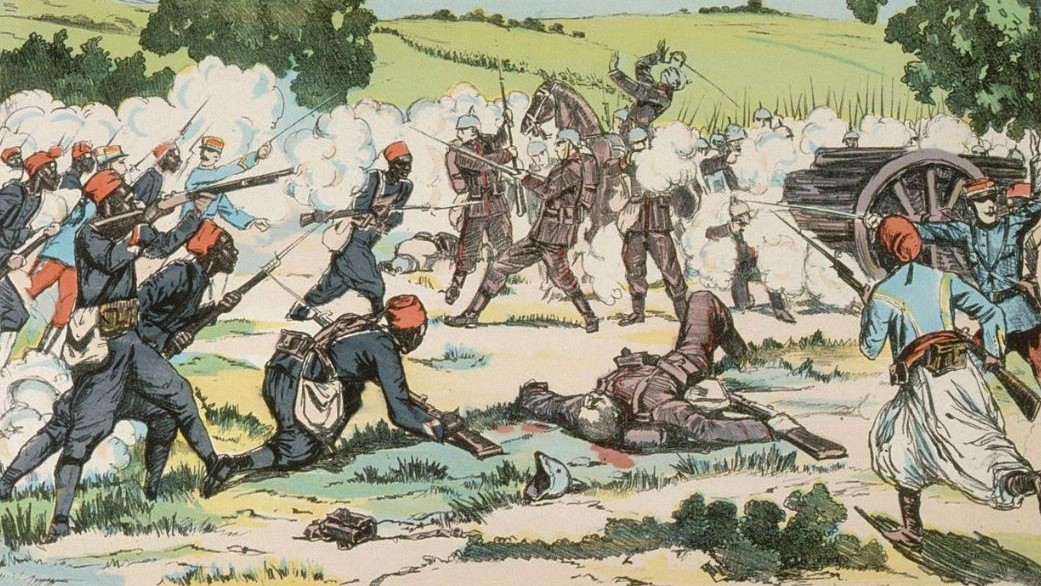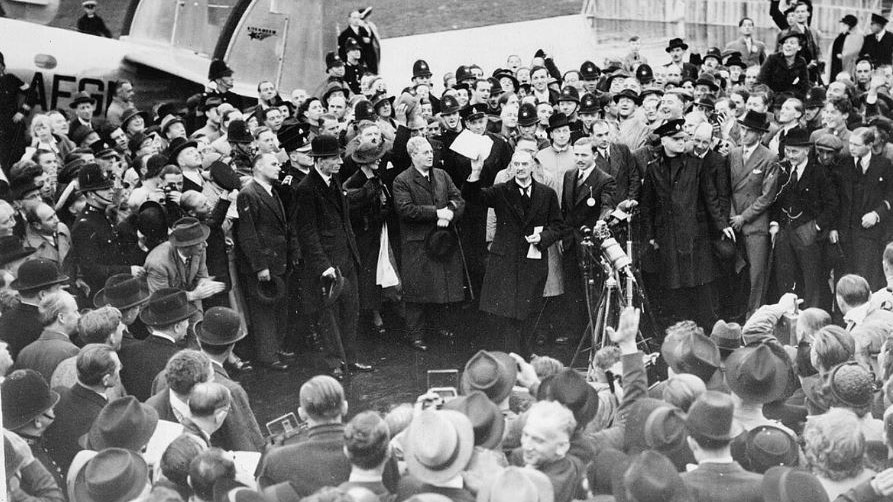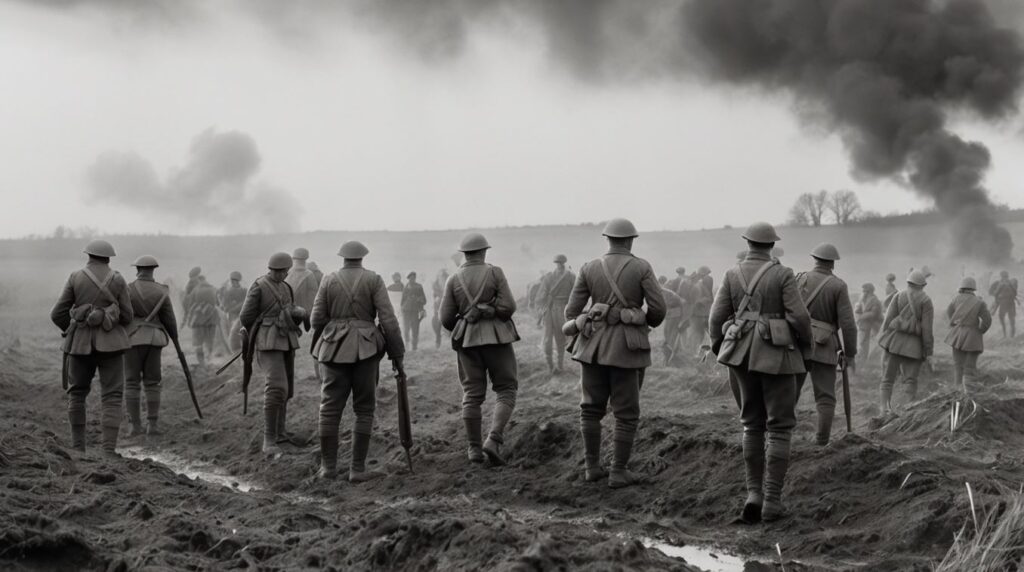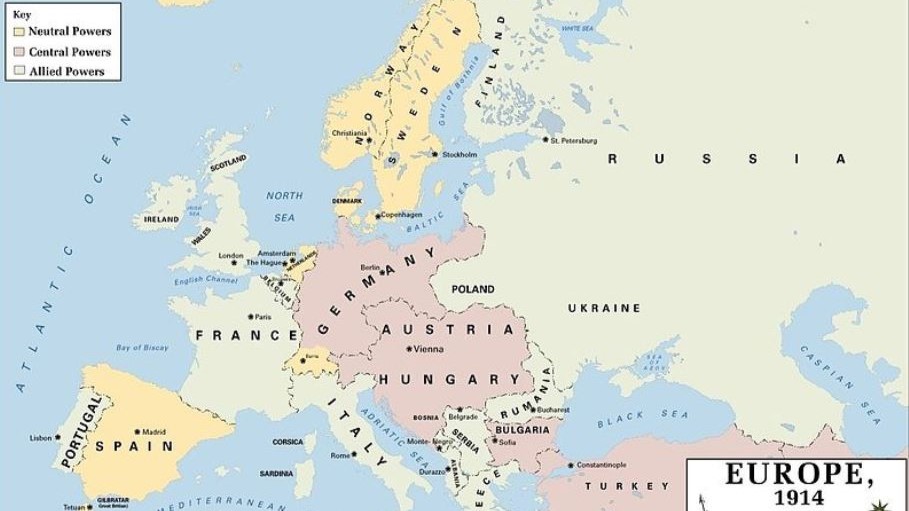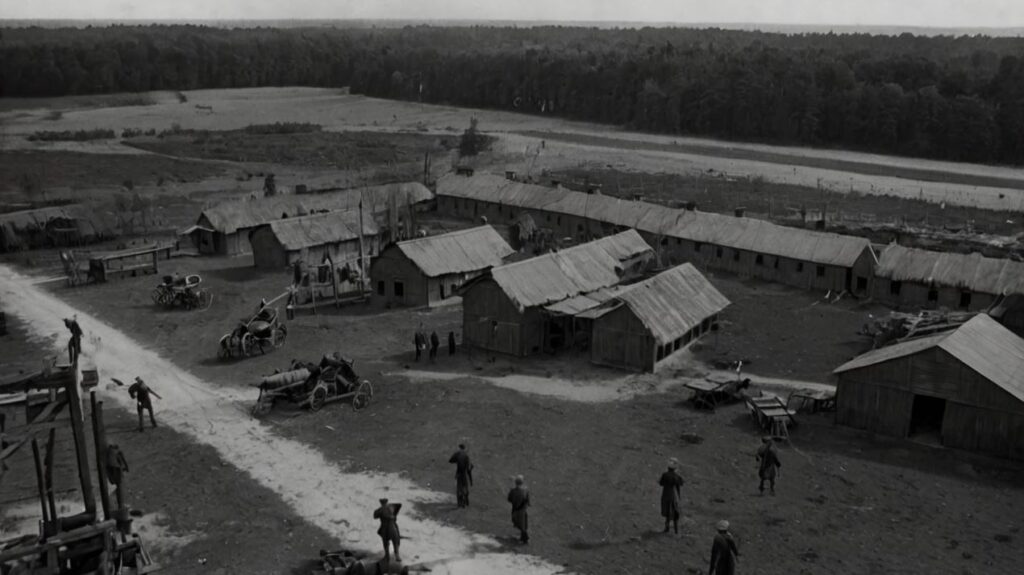The invasion of neutral Belgium in August 1914 was a pivotal moment that shaped the course of World War I and drew Britain into the conflict.
But what if Germany had chosen a different path? How might the Great War have unfolded if the German army had not invaded Belgium in World War 1?
This article explores the potential outcomes and implications of a World War I where Germany pursued an alternative strategy.
- 1. Background: The Schlieffen Plan
- 2. Hypothetical Scenario: An Alternative German Strategy
- 3. Military and Strategic Outcomes
- 4. Impact on France
- 5. Impact on Britain
- 6. Impact on Russia
- 7. Impact on Belgium
- 8. Impact on Italy
- 9. Political and Social Implications
- 10. Final Thoughts: What if Germany Didn't Invade Belgium in World War I?
- Further Reading
1. Background: The Schlieffen Plan
To understand the significance of this hypothetical scenario, we must first consider the strategic thinking that led Germany to invade Belgium in the first place.
The German war plan, known as the Schlieffen Plan, was developed by General Alfred von Schlieffen in the early 1900s. Its primary objective was to avoid a two-front war by quickly defeating France before Russia could fully mobilize its forces.
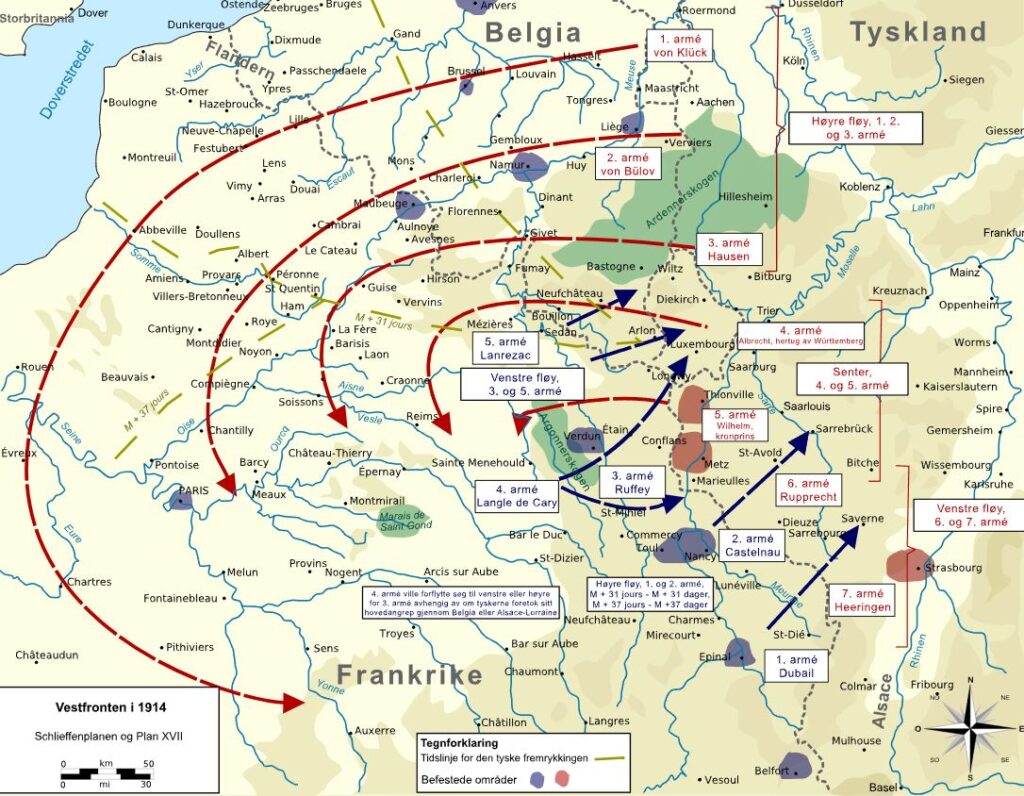
The plan called for a massive sweep through Belgium and northern France. The aim was to bypass French defenses and encircle Paris from the north.
Belgium’s strategic location and well-developed railway network made it an ideal route for this rapid advance.
However, Belgium was a neutral country. Its invasion not only violated international law but also brought Britain into the war due to its treaty obligations to defend Belgian neutrality.
2. Hypothetical Scenario: An Alternative German Strategy
In our alternate history, let’s assume that Germany decides against invading Belgium. Either due to moral considerations, fear of British intervention, or a reassessment of strategic priorities.
Instead, Germany opts for a defensive posture on the Western Front, similar to the strategy they adopted in 1917 after years of costly offensives.
This approach would involve holding the line against France while concentrating their efforts on defeating Russia in the East.
The key assumptions in this scenario are:
- Germany maintains its alliance with Austria-Hungary and its antagonistic relationship with Russia.
- France and Russia remain allied against Germany.
- Britain’s entry into the war is not guaranteed without the invasion of Belgium.
- Italy’s allegiance remains uncertain, as it did historically in the early stages of the war.
3. Military and Strategic Outcomes
Western Front:
Without the invasion of Belgium, the Western Front would look dramatically different.
The German army would likely fortify its border with France, creating a strong defensive line.
France, adhering to its Plan XVII, might still launch offensives into Alsace-Lorraine, but these would face well-prepared German defenses.
The absence of fighting in Belgium and northern France would spare these regions from the devastation they historically experienced.
Cities like Ypres and Verdun might never become synonymous with the horrors of trench warfare.
However, a stalemate could still develop along the Franco-German border, albeit on a smaller scale than the historical Western Front.
Eastern Front:
With more resources available, Germany could launch a more powerful offensive against Russia.
The historical victories at Tannenberg and the Masurian Lakes might be even more decisive.
A stronger German presence could also better support Austria-Hungary. This would potentially prevent the disastrous Galician campaign that nearly knocked Austria-Hungary out of the war in 1914.
If Germany could defeat Russia more quickly, it might force a separate peace as early as 1915 or 1916.
This would eliminate the two-front war that Germany had long feared and allow it to redirect its full strength westward if necessary.
Overall War Dynamics: The war might be shorter and less global in scale.
Without Britain’s immediate entry, the naval blockade of Germany would be less effective. This would have eased pressure on the German home front.
The conflict might remain primarily a continental European war, with less involvement from global powers like the United States.
4. Impact on France
France would face a difficult strategic situation.
With Germany on the defensive, France’s offensive-minded strategy would likely lead to costly attacks against prepared positions.
If Russia were defeated early, France would be in an even more precarious position. It would be potentially facing the full might of the German army without significant allies.
The question of whether France would stay in the war after a Russian defeat is complex.
French national pride and the desire to reclaim Alsace-Lorraine might compel them to fight on, but the prospect of facing Germany alone could also push them towards a negotiated peace.
5. Impact on Britain
Without the invasion of Belgium, Britain’s entry into the war would be far from certain.
While Britain had agreements with France, they were not bound by a formal alliance. The British government might have faced more domestic opposition to joining the war without clear justification, like the violation of Belgian neutrality.
If Britain remained neutral, it would significantly alter the balance of power.
Germany would not face a naval blockade, and the Western Front would not receive British reinforcements.
However, Britain might still support France and Russia economically and diplomatically, possibly entering the war later if it appeared that Germany was becoming too powerful on the continent.
6. Impact on Russia
Facing a more concentrated German offensive, Russia might suffer even greater defeats than it did historically.
The Russian army’s structural weaknesses, including poor leadership and inadequate supplies, would be exposed more quickly against a larger German force.
An earlier defeat could have profound implications for Russian internal politics.
The Russian Revolution of 1917 was partly fueled by war weariness and military failures. An earlier collapse of the Russian war effort might precipitate a revolution sooner, possibly changing its nature and outcomes.
Alternatively, a quicker defeat might allow the Tsarist regime to survive, leading to a very different 20th-century Russia.
7. Impact on Belgium
In this scenario, Belgium would likely remain neutral throughout the conflict.
While this would spare the country from the destruction it suffered historically, it would also diminish Belgium’s international standing.
The heroic resistance against German invasion played a significant role in garnering international sympathy and support for Belgium in the post-war years.
8. Impact on Italy
Italy’s decision to enter the war would depend heavily on how the conflict progressed.
Historically, Italy joined the Allies in 1915 after being promised territorial gains at Austria-Hungary’s expense.
In a scenario where Germany and Austria-Hungary were performing better militarily, Italy might be more inclined to either remain neutral or even join the Central Powers. Especially if Britain was not actively involved in the war.
9. Political and Social Implications
European Politics:
The political map of post-war Europe would look dramatically different in this scenario.
Without the wholesale collapse of empires seen in the historical outcome, we might see a continuation of the monarchical system in many countries.
Germany, even if not outright victorious, would likely emerge as the dominant power in Central and Eastern Europe.
The absence of a defeated and occupied Belgium might dilute the development of Flemish nationalism as we know it. Similarly, the fate of Alsace-Lorraine would depend on the war’s outcome.
A quicker end to the war might prevent the fall of the Romanov dynasty in Russia, the collapse of Austria-Hungary, and the end of the Ottoman Empire. This would have far-reaching consequences for the development of nationalist movements and the creation of new states in Eastern Europe and the Middle East.
Civilian Impact:
The civilian experience of the war would vary greatly depending on location.
Belgian and northern French civilians would be spared the hardships of occupation and the destruction of their homes and livelihoods.
However, civilians in the East might experience more intense fighting as Germany focused its efforts there.
The shorter duration of the war in this scenario might result in fewer casualties overall, both military and civilian. This could lead to a less traumatized post-war society, potentially altering the cultural and artistic movements that emerged from the crucible of the Great War.
The absence of a prolonged, total war might also slow the pace of social change.
The historical World War I accelerated trends like women’s suffrage and labor rights as women entered the workforce en masse to support the war effort. A shorter, less total war might not create the same impetus for social transformation.
10. Final Thoughts: What if Germany Didn’t Invade Belgium in World War I?
The decision not to invade Belgium would have dramatically altered the course of World War I and, by extension, the entire 20th century.
While it’s impossible to predict exactly how events would have unfolded, this exploration suggests a potentially shorter, more geographically limited conflict with Germany emerging in a stronger position.
The effect of this change would be enormous.
Without the shared trauma of a prolonged, global conflict, the international order might have evolved very differently.
The League of Nations might never have been formed, and the conditions that led to the rise of fascism and World War II might not have materialized in the same way.
This hypothetical scenario underscores the significance of the invasion of Belgium as a turning point in world history. It demonstrates how strategic decisions made in the heat of crisis can have far-reaching and often unintended consequences, shaping the course of nations and the lives of millions.
As we reflect on this alternate history, we’re left to wonder: How might our world today be different if Germany had chosen another path in August 1914? And what lessons can we draw from this exploration about the importance of international law, the consequences of military strategies, and the interconnectedness of global events?
Further Reading
I hope you have found this blog post about What if Germany Didn’t Invade Belgium in World War I? interesting. To find out more about World War 1, read here:
- The Haunting Russian Zombie Legends of World War I
- White Friday: A WW1 Tragedy on the Italian Front
- Militarism, Alliances, Imperialism, Nationalism: The MAIN causes of WWI
- Germany’s World War 1 Turnip Winter
- Did Any Civil War Veterans Serve in World War 1?
You may also enjoy these articles exploring ‘What If’ scenarios:

